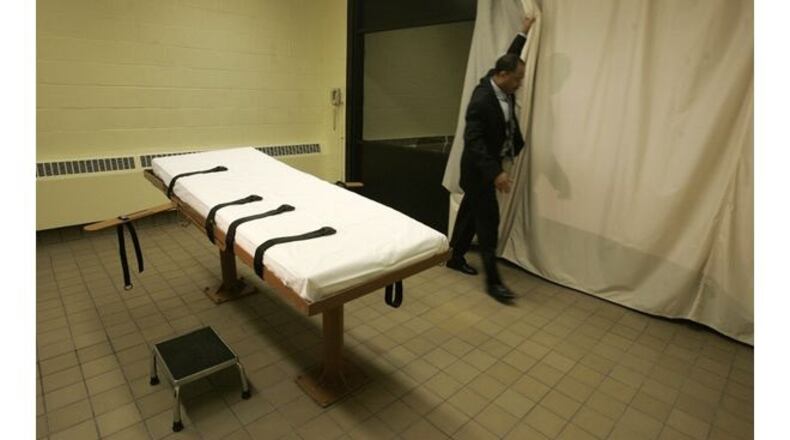House Bill 136, which cleared the House in June on a 76-18 vote, is opposed by county prosecutors and Ohio Attorney General Dave Yost but supported by medical associations, the Catholic Conference of Ohio and League of Women Voters of Ohio.
Before the bill heads to DeWine’s desk, the House must agree to Senate changes to the bill.
The issue of serious mental illness could be raised before trial or after conviction and it would only apply to specific diagnoses, including delusional disorder, bipolar or schizophrenia, which can impair people’s thinking and behavior.
Offenders already on death row would be given one year from effective date of the bill to petition the courts. Offenders have the burden of proof to show they suffered from a qualifying illness.
In 2014, an Ohio Supreme Court task force called for sweeping changes to the state’s death penalty system, including a prohibition on executing offenders who suffered from serious mental illness.
Ohio adopted its current death penalty statute in 1981. Ohio has 137 men and one woman on death row.
The Ohio House canceled its Wednesday and Thursday sessions this week but continued to hold committee hearings. At least four Ohio House members have tested positive for COVID-19 and other lawmakers are awaiting test results. Sixteen House members were absent from Tuesday’s session, though it’s unclear how many of those absences were due to the coronavirus.
The cancelations come as lawmakers try to push bills over the finish line before the two-year legislative session ends this month. Unfinished business includes multiple bills on abortion restrictions, gun rights, public health orders, criminal drug sentencing reforms and a $2.5 billion capital spending plan.
The Senate voted Wednesday to agree to House changes to a bill that would require cremation or burial of fetal tissue from abortions. DeWine is expected to sign it into law.
Information from the Associated Press is included in this report.
About the Author

